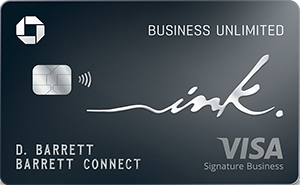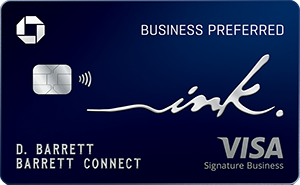7 Ways to Prepare Your Business for a Recession
KEY POINTS
- Recessions are a common economic event and can last for years.
- There are ways to offset the negative impact of a recession on your business, including cutting your spending, renegotiating with suppliers, and strengthening your cash reserves.
- Small businesses can emerge even stronger from a recession.
Preparing now can save you pain later.
The National Bureau of Economic Research (NBER) defines a recession as a significant decline in economic activity that is spread across the economy and lasts more than a few months. Although there are no absolutes when it comes to recessions, rising inflation and the shrinking of the U.S. gross domestic product (GDP) for the last two quarters are all indications that a recession is looming on the horizon.
What happens during a recession
The NBER looks at several factors to determine if there is a recession, starting with GDP. But they also look at other indicators to determine whether a recession has occurred, including:
- Income
- Employment
- Industrial production
- Wholesale and retail sales
During a recession, product sales decline, employers reduce their workforce, manufacturing slows, and spending drops. As a result, cost of living pay increases and jobs may be harder to find. Though recessions are common, they can be frightening, especially for smaller businesses with fewer resources. The good news is that there are ways to prepare for a recession before it impacts your business.
1. Cut spending
The time to cut down on spending is before a recession begins. Start by tracking cash flow better. And if you're not currently tracking cash flow at all, now is the time to start. It can also be helpful to prepare a bare-bones budget that cuts extra spending, which allows you to see how much you need to get by, should sales drop. And if you're looking to increase spending by upgrading computers, moving to a bigger office, or adding staff, you should probably put those plans on hold.
2. Be more selective when offering credit terms
To remain competitive, most businesses find it necessary to offer credit terms to their customers. While you may be reluctant to change credit terms for your existing customers, it's important to be more selective when offering credit terms to new customers. This may require some extra due diligence, but time spent up front is more important than spending time trying to collect on delinquent accounts. And if cash flow becomes really tight, making the move to all-cash sales, at least temporarily, may be necessary.
3. Get a line of credit
A good way to shore up your cash reserves is to obtain a line of credit from your bank or credit card company. Remember, you don't have to use it, but it can bring some peace of mind if you know you have emergency cash readily accessible. But the time to apply for a line of credit is now, before a recession strikes, since like most businesses, banks and financial institutions typically limit the availability of lines of credit. It's also a good idea not to rely too heavily on a line of credit, since banks have been known to reduce or even cancel them during a prolonged recession.
Business Credit Card Comparison
Consider these business credit cards that offer a convenient and efficient way to separate personal and business expenses, simplifying accounting and tax reporting.
Additionally, business cards can provide valuable perks such as rewards points, cashback, and expense tracking tools, enhancing financial management and the potential to help save money in the long run.
| Offer | Our Rating | Welcome Offer | Rewards Program | APR |
|---|---|---|---|---|

Ink Business Unlimited® Credit Card
Apply Now for Ink Business Unlimited® Credit Card
On Chase's Secure Website. |
Rating image, 4.50 out of 5 stars.
4.50/5
Our ratings are based on a 5 star scale.
5 stars equals Best.
4 stars equals Excellent.
3 stars equals Good.
2 stars equals Fair.
1 star equals Poor.
We want your money to work harder for you. Which is why our ratings are biased toward offers that deliver versatility while cutting out-of-pocket costs.
|
Earn $750 bonus cash back Earn $750 bonus cash back after you spend $6,000 on purchases in the first 3 months from account opening. | Earn unlimited 1.5% cash back on every purchase Earn unlimited 1.5% cash back on every purchase made for your business |
Intro: 0% Intro APR on Purchases Purchases: 0% Intro APR on Purchases, 12 months Balance Transfers: N/A Regular: 18.49% - 24.49% Variable |

Ink Business Preferred® Credit Card
Apply Now for Ink Business Preferred® Credit Card
On Chase's Secure Website. |
Rating image, 4.50 out of 5 stars.
4.50/5
Our ratings are based on a 5 star scale.
5 stars equals Best.
4 stars equals Excellent.
3 stars equals Good.
2 stars equals Fair.
1 star equals Poor.
We want your money to work harder for you. Which is why our ratings are biased toward offers that deliver versatility while cutting out-of-pocket costs.
|
Earn 120,000 bonus points Earn 120,000 bonus points after you spend $8,000 on purchases in the first 3 months from account opening. | Earn 3 points per $1 in select business categories Earn 3 points per $1 on the first $150,000 spent in combined purchases on travel, shipping purchases, Internet, cable and phone services, advertising purchases made with social media sites and search engines each account anniversary year. Earn 1 point per $1 on all other purchases-with no limit to the amount you can earn. |
Intro: N/A Purchases: N/A Balance Transfers: N/A Regular: 21.24%-26.24% Variable |
4. Strengthen your cash reserves
If you have cash reserves for your business, now is the time to start funneling additional revenue into it. And if you don't have cash reserves, it's a good idea to start saving now. Having cash put aside can help small businesses cover expenses should revenue drop. But remember, cash reserves should only be used for emergencies.
5. Renegotiate with vendors and suppliers
Chances are your vendors and suppliers are feeling the effects of a slower economy as much as you are. But it's worth trying to renegotiate. While it's unlikely that you'll be able to secure lower pricing, you may be able to get better payment terms or a discount for paying early.
6. Manage your accounts receivable more aggressively
In the past, you may have given your credit accounts some leeway when it came to paying late. But with a recession looming, it's important to stay on top of your accounts receivable balances and initiate collections processes sooner rather than later. Remember, it's likely that your customers are initiating the same cutbacks that you are, so changing payment terms (see #2) may be necessary.
7. Streamline operations
Though streamlining operations is often done as a last resort, doing so before a recession hits can help you retain your staff and still maintain your current customer load. However, if you're carrying a large number of employees, you may find it necessary to downsize, particularly if your sales numbers take a hit as well. You may also want to consider outsourcing certain areas like HR and payroll instead of looking for full-time help.
There is nothing you can do to prevent a recession. But successful business owners prepare ahead of time to help them weather the storm and emerge even stronger afterward.
Alert: our top-rated cash back card now has 0% intro APR until 2025
This credit card is not just good – it’s so exceptional that our experts use it personally. It features a lengthy 0% intro APR period, a cash back rate of up to 5%, and all somehow for no annual fee! Click here to read our full review for free and apply in just 2 minutes.
Our Research Expert
We're firm believers in the Golden Rule, which is why editorial opinions are ours alone and have not been previously reviewed, approved, or endorsed by included advertisers. The Ascent, a Motley Fool service, does not cover all offers on the market. The Ascent has a dedicated team of editors and analysts focused on personal finance, and they follow the same set of publishing standards and editorial integrity while maintaining professional separation from the analysts and editors on other Motley Fool brands.
Related Articles
View All Articles